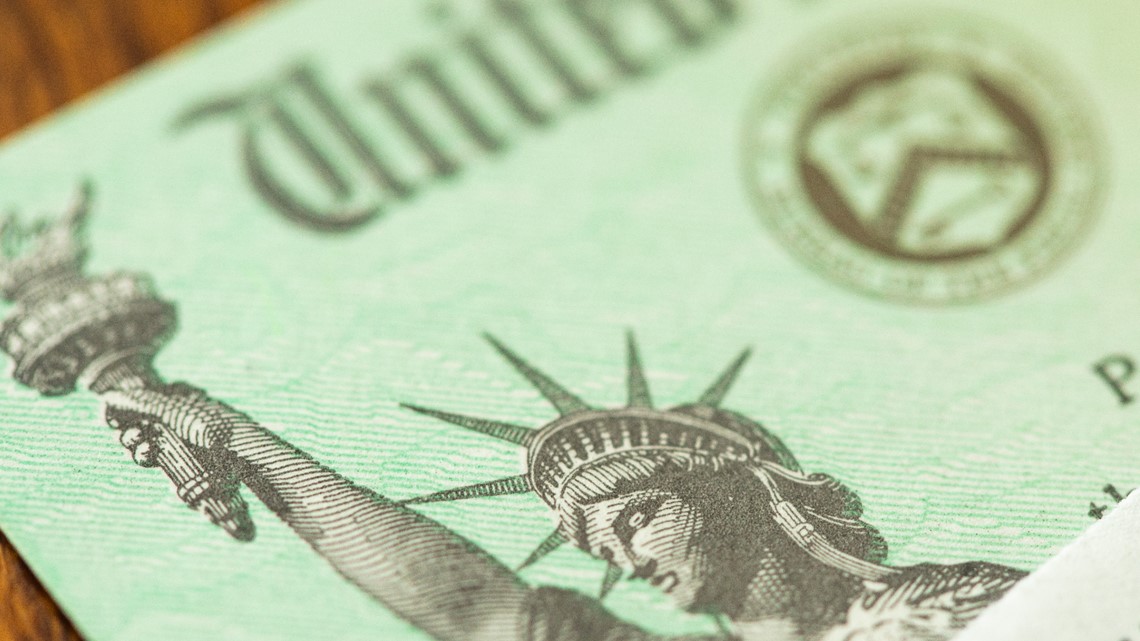More than 50 House members, led by Rep. Ilhan Omar, D-Minn., are calling on President Joe Biden to go a step farther with future coronavirus relief plans and to send recurring payments to Americans who most need them -- specifically people who would spend the money immediately.
Biden's $1.9 trillion COVID-19 relief package includes $1,400 for most Americans and their child dependents. It's facing resistance over the price tag from Republicans in Congress calling for breaking the plan into smaller chunks -- something Biden and Democrats rejected Thursday.
Regardless of what happens with that plan, Omar and 55 co-signers in a letter to Biden said any future relief plans need to go farther -- namely with recurring payments for people who are most likely to spend the money immediately.
"The stunning financial crisis for those at the bottom of the income ladder demands massive relief to those who need it most," Omar wrote. "Recurring direct payments until the economy recovers will help ensure that people can meet their basic needs, provide racially equitable solutions, and shorten the length of the recession."
Omar did not put a dollar figure on how much the payments should be. She said the payments should continue until the economy recovers; prioritize those who need it most and will spend it quickest; include older dependents and those over the age of 16; and go to all immigrant workers, refugees and their families.
RELATED: $2,400 stimulus check for moms? Charlize Theron, Amy Schumer among celebrities making case to Biden
A study by the U.S. Census found 88% of people who made $25,000 or less used their CARES Act money on household expenses. By contrast, 1/3 of people with incomes of $75,000-$99,999 were more likely to pay off debt or save the money.
John Friedman, an economist at Brown University and with Opportunity Insights, said his group has run the numbers for the $1,200 stimulus checks that went out last spring and the $600 checks approved in December.
“We have done the same analysis for both checks and what we found is actually really interesting,” Friedman told KARE11. “For the first check, both low-income households and high-income households saw a decent sized increase in spending.”
But for the second check?
“What we find is that households earning more than about $75,000 a year, are those households that are really just entirely saving the stimulus check,” Friedman said.
A big reason for this is that the massive unemployment which has hit the country during the pandemic is largely hitting lower-income workers who can't afford to save their stimulus money. They need it for food, rent and utilities.
As for Biden's current proposal, Senate Majority Leader Chuck Schumer and House Speaker Nancy Pelosi are laying the groundwork for a go-it-alone approach as soon as next week if they end up in a stalemate with Republicans. They are drafting a budget reconciliation bill that would start the process to pass the relief package with a simple 51-vote Senate majority — rather than the 60-vote threshold typically needed in the Senate to advance legislation. The goal would be passage by March, when jobless benefits, housing assistance and other aid is set to expire.
Senate Republicans in a bipartisan group warned their colleagues in a “frank” conversation late Wednesday that Biden and Democrats are making a mistake by loading up the aid bill with other priorities and jamming it through Congress without their support, according to a person familiar with the matter who spoke on condition of anonymity to discuss the private session.
Lisa Mascaro and Josh Boak of the Associated Press and Jana Shortal from KARE11 contributed to this report.



